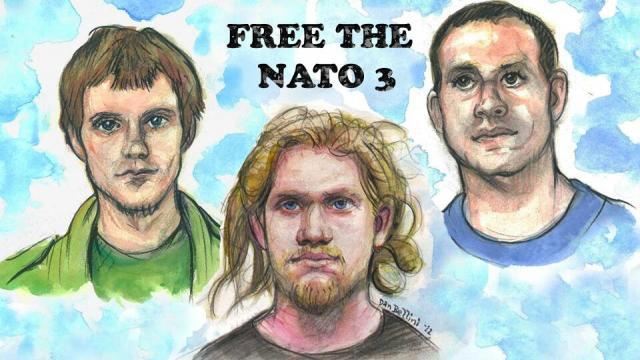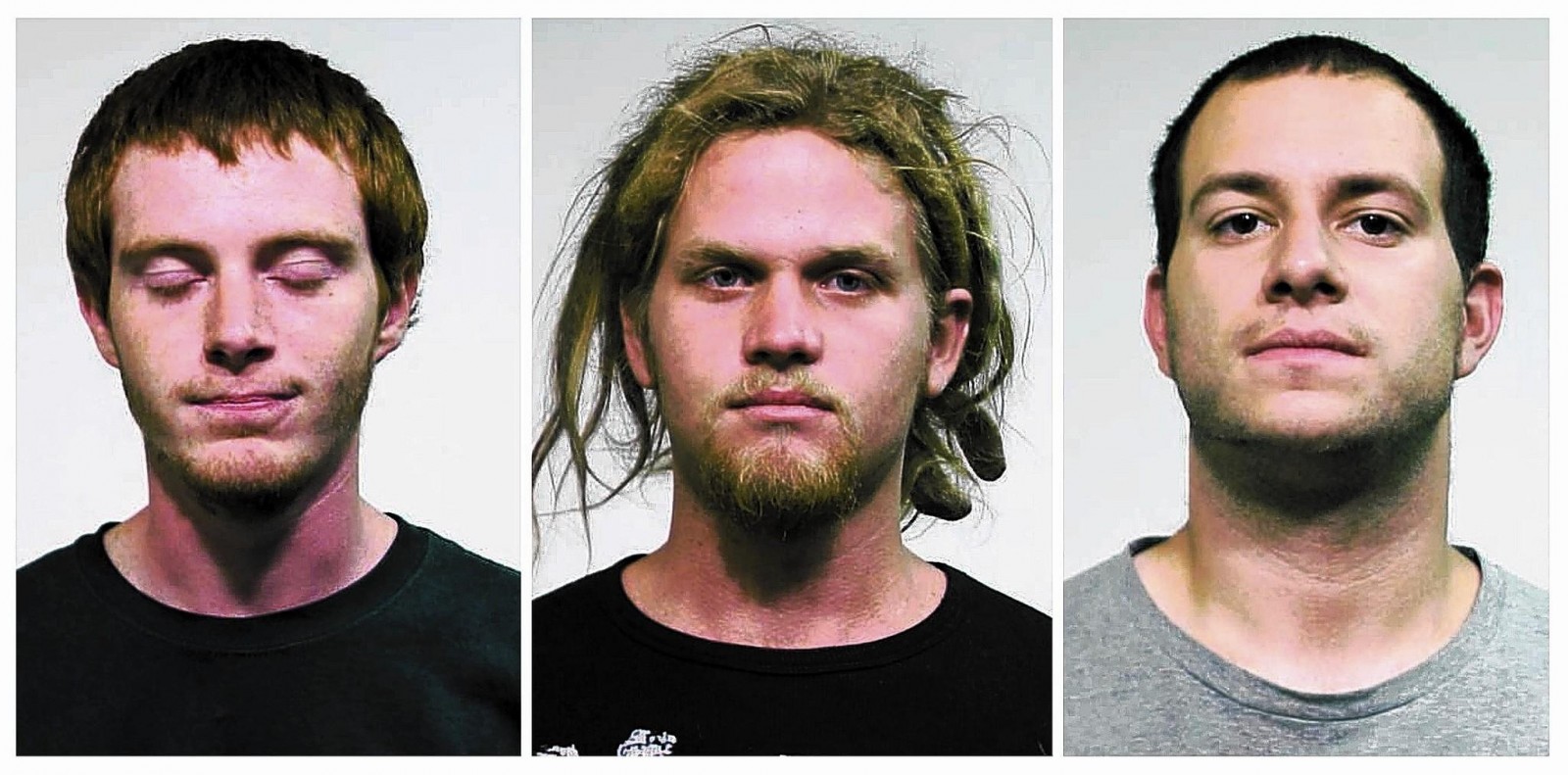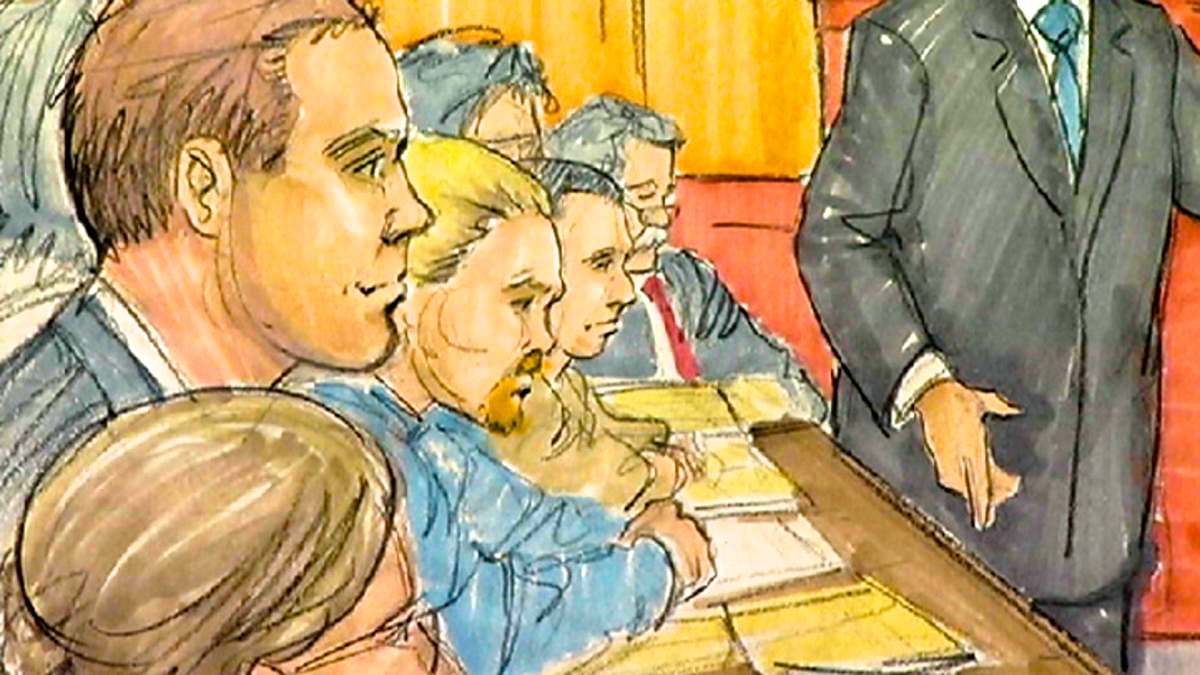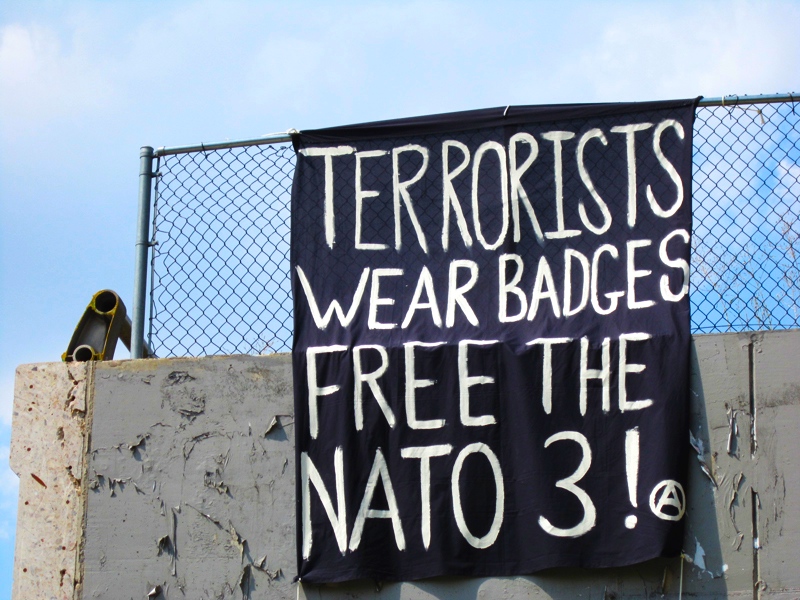
When police encourage and orchestrate ”terrorist plots,” and then arrest their ”co-conspirators” prior to the act, can you call it law enforcement? It seems we're about to find out in the trial of the NATO 3, which just wrapped up its eighth day on Thursday in a Chicago courtroom.
The case involves three men – Brian Jacob Church, Jared Chase, and Brent Betterly – who are accused of conspiracy to commit terrorism during the 2012 NATO Summit in Chicago. According to the prosecution, their alleged targets included President Obama's campaign headquarters.
They were arrested after a raid discovered four beer bottles that allegedly contained gasoline. All three men face up to 40 years in prison. The raid took place a few days before a massive march and rally of tens of thousands protesting the summit.
The court testimonies of Chicago police officers Nadia Chikko and Mehmet Uygun, who spied on Occupy Chicago meetings, protests, concerts and activities, including at the city's Heartland Cafe, revealed that the two undercover police officers encouraged the defendants to be violent and perhaps even orchestrated the plan from the start – what has become a key issue for the defense.
It was Uygun who brought up the idea of using molotov cocktails with the men, then offered to make them. He even said he would “terrorize” the city. Uygun said he made the remarks in order to feel “included” in the group's plans.
The undercover cops also made recordings of the defendants sometimes saying violent things. However, the defendants were more concerned with drinking beer and smoking pot, the defense argued, claiming they were ”goofs” and not terrorists.
Church came off in the recordings as a pothead with little interest in terrorist plots and more interest in impressing the female undercover cop Chikko. According to the Chicago Tribune, Church said to her, “I'm one of the most unique [EXPLETIVE] you'll ever find. I'm so anarchist I don't even call myself an anarchist.”
The prosecution in the NATO 3 trial filed a motion Tuesday for the jury to disregard police misconduct on ”first amendment investigations,” as growing media attention has emerged around the case. In his article for The Dissenter, Kevin Gosztola writes that “the prosecutors told the judge it was wrong for this information to be injected into proceedings.”
”Giving the impression that the Chicago Police Department and undercover officer Nadia Chikko did “something inappropriate” is not appropriate because it is “not true.” Plus, police should be going into locations in the activist community to find “violent anarchists” to stop them from committing crimes and, if the three are convicted, it will show their efforts were valuable to safety.“
On Wednesday, the prosecution faced another blow when the defense pointed out that the GPS information recovered from the car of the defendants did not belong to one of the defendants, Jared Chase, but rather to the roommate of Church who shared the same name.
The ”evidence” was subsequently withdrawn by the prosecution, as the Judge asked, “Anything else anybody wants to get off their chest?” It reiterated the sense, ongoing throughout the case, that the prosecution has been bungling its facts, objecting at the wrong times and admitting to evidence clarified by the defense.
Infiltration and entrapment is a common tactic used by police agents to spy on, disrupt and discredit activists – and increasingly to facilitate and provoke them into committing potentially violent acts. A similar strategy was used to nab activists involved at Occupy Cleveland, and in the high-profile case of Brad Crowder and David McKay who were entrapped by the FBI informant Brandon Darby to carry out a terror action at the 2008 Republican Convention in Minneapolis.
What is alarming about the case is that these three men are not being charged with something they did, but with something they might have done, based on the language they were recorded as using by the cops who were paid to facilitate their act. The arrests happened shortly before a sprawling anti-NATO protest that drew international attention – leading many to the conclusion that Chicago's security apparatus aimed to vilify and discredit the protests before they even started.
Regardless of whether the three men receive verdicts of guilty or innocent, the NATO 3 trial has already raised serious questions about the ways government and security forces use surveillance powers – and how much their use of those powers, combined with infiltration and direct encouragement of violent terrorist acts, they are allowed to get away with.
3 WAYS TO SHOW YOUR SUPPORT
- Log in to post comments














